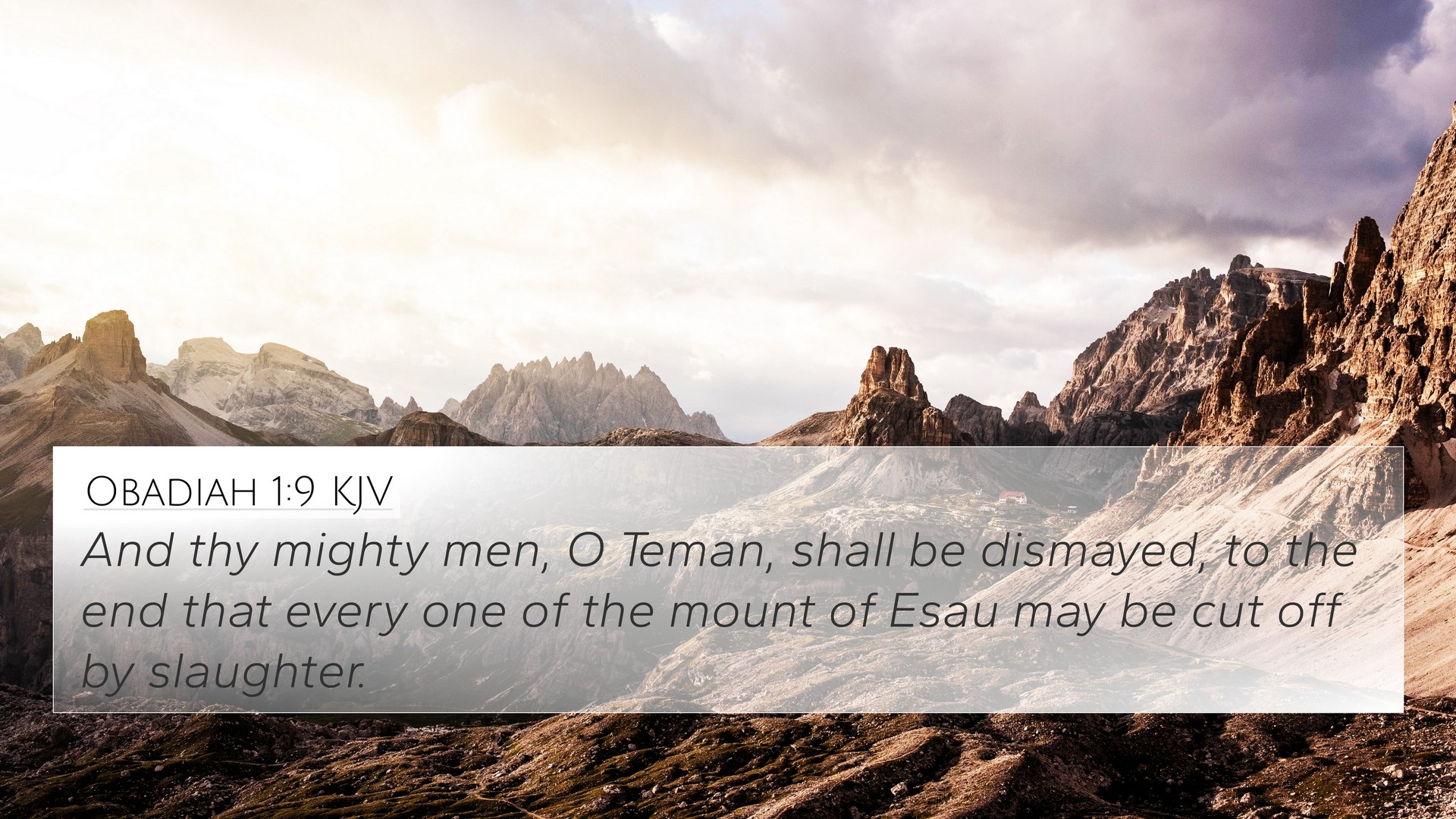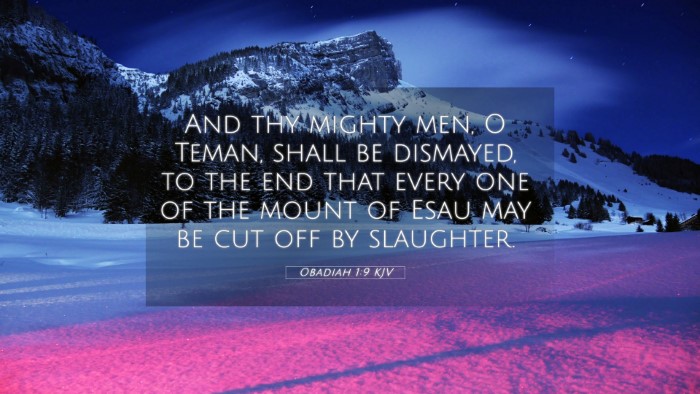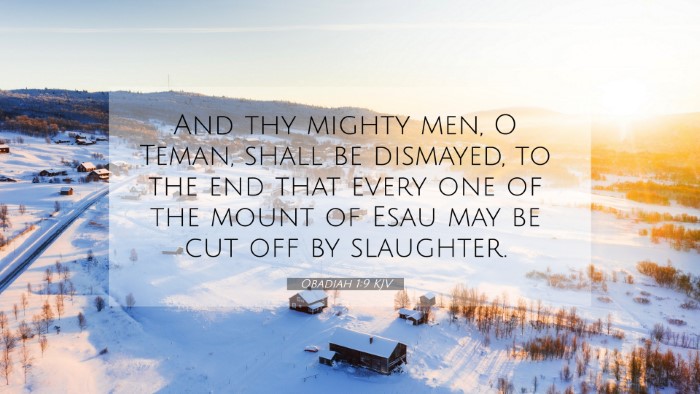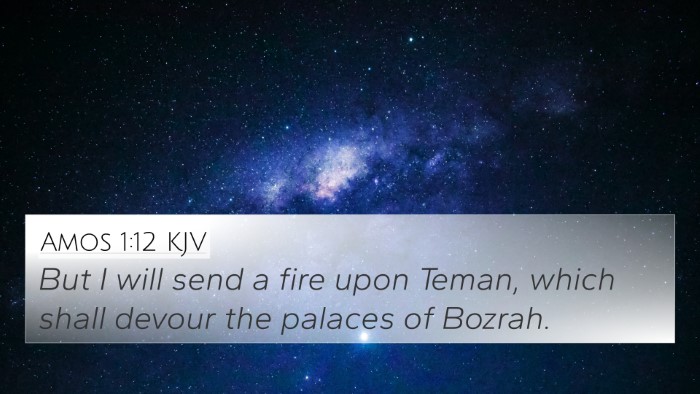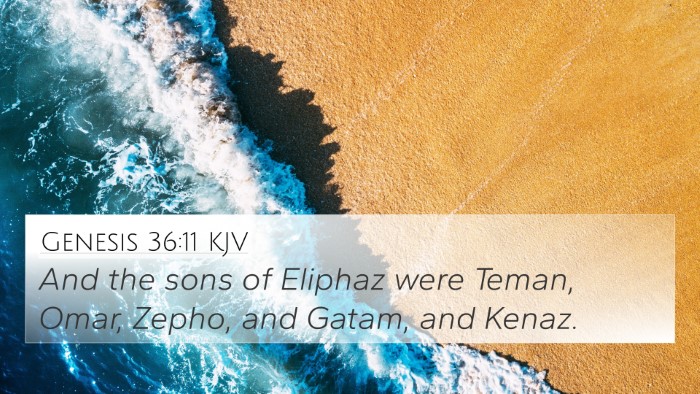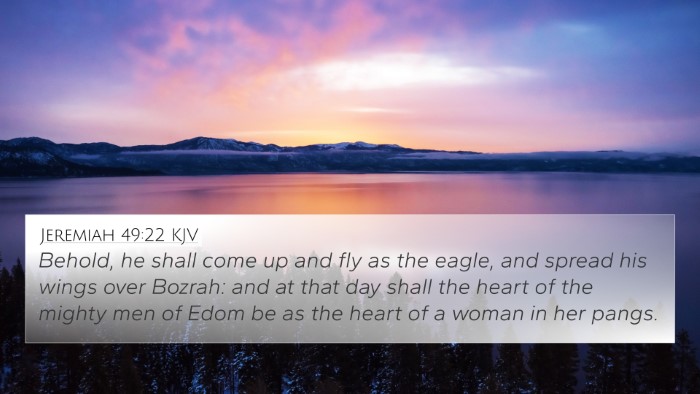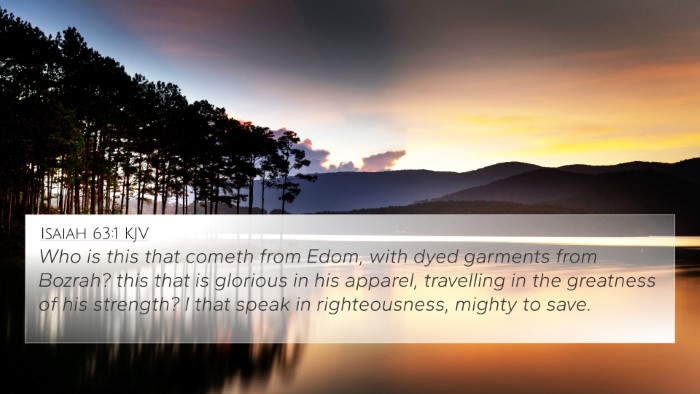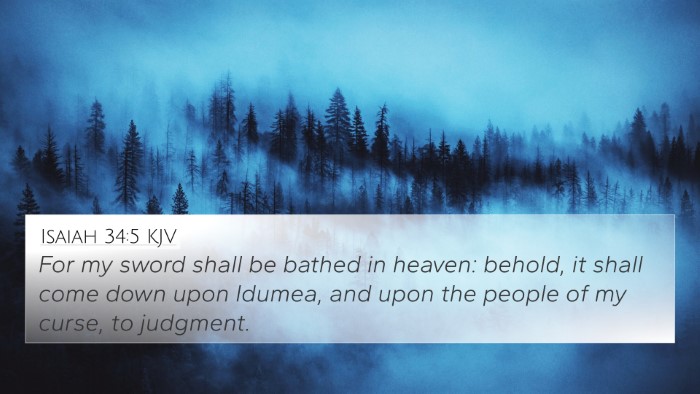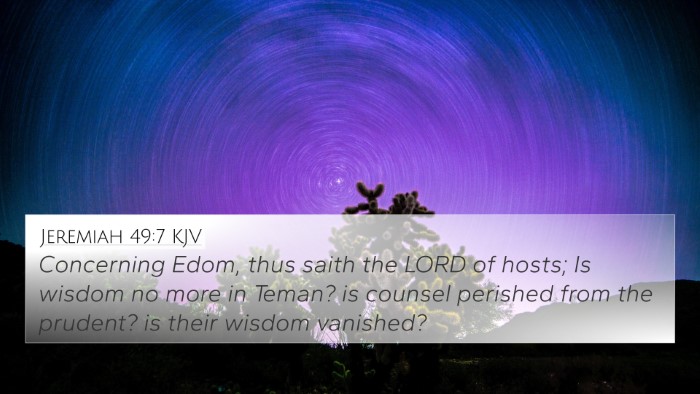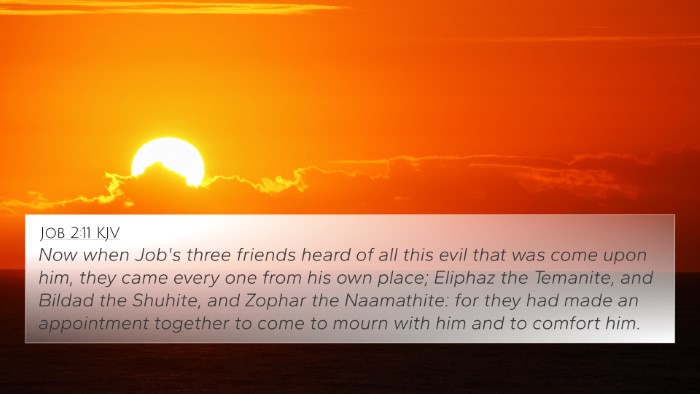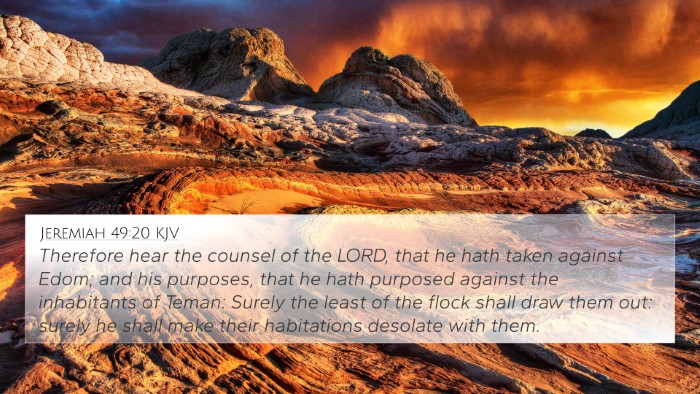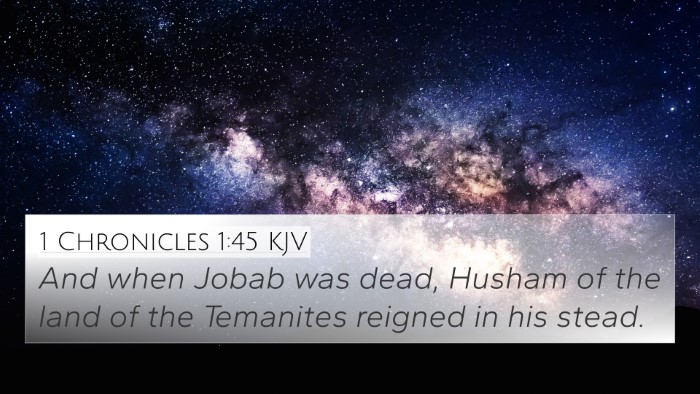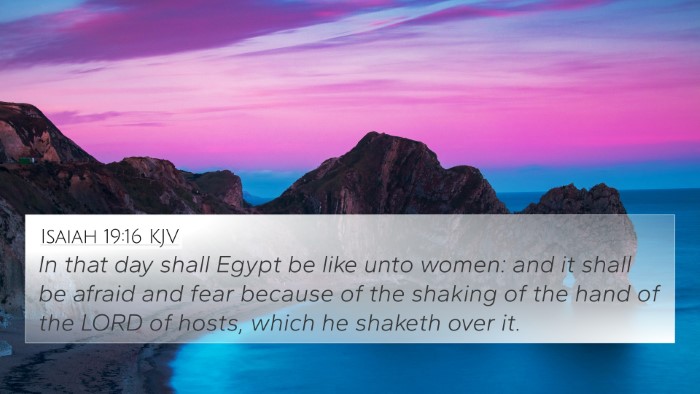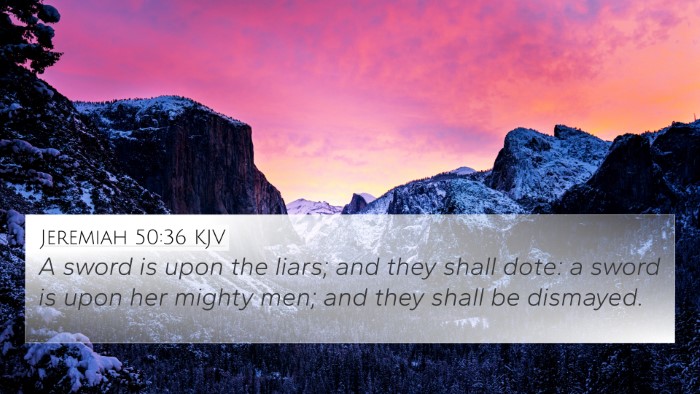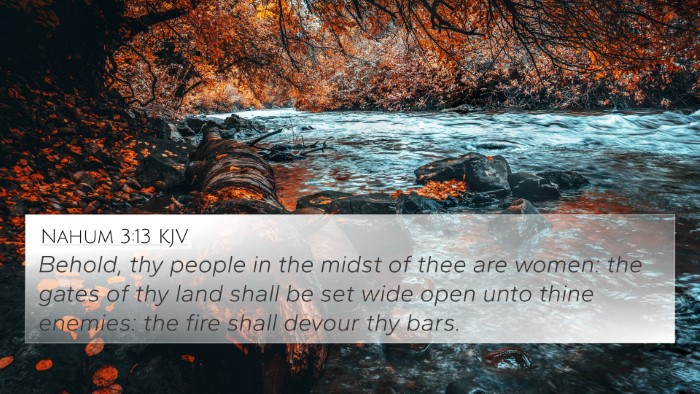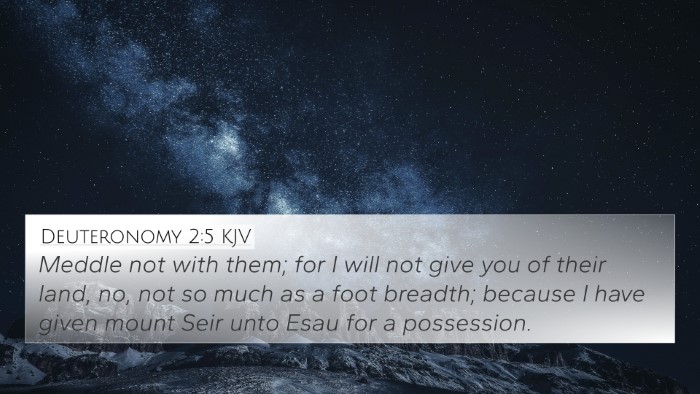Understanding Obadiah 1:9
Obadiah 1:9 states, "And your mighty men, O Teman, shall be dismayed, to the end that every one of the mount of Esau may be cut off by slaughter."
This verse serves as a pointed warning to Edom, a nation descended from Esau. It reflects on the impending judgment due to their pride and violence against Israel. Here, themes of divine retribution and the vulnerability of the proud are brought to the forefront.
Insights from Public Domain Commentaries
-
Matthew Henry:
Henry notes that the "mighty men" of Edom, known for their strength and valor, will be reduced to fear. This indicates that their militaristic pride will lead to their downfall. The judgment implies that no matter how fortified they believe themselves to be, they are ultimately no match for God's judgment.
-
Albert Barnes:
Barnes emphasizes the significance of "Teman," considered a stronghold in Edom. The reference to dismay suggests not just physical defeat but a psychological turmoil that will consume Edom's warriors, emphasizing the comprehensive nature of God's judgment.
-
Adam Clarke:
Clarke points out the use of "mount of Esau," symbolizing not just a geographical location but Evom's heritage and pride. The prophecy signifies that even those of noble lineage and powerful standing would face destruction when they rise in opposition to God's people.
Thematic Connections
This verse can be analyzed through thematic connections present in the scriptures. Notably, the proud often face downfall at the hands of the Almighty, a recurring theme throughout the Bible.
Cross-References
- Obadiah 1:10: Discusses the violence done against Jacob, reinforcing the theme of divine retribution.
- Isaiah 34:5-6: Foretells judgment upon Edom, connecting directly with the themes of destruction found in Obadiah.
- Jeremiah 49:7-22: Provides a broader context of God's judgment on Edom, highlighting their pride.
- Ezekiel 25:12-14: Details God's planned retribution against Edom for their sins against Israel.
- Malachi 1:3: Refers to God's hatred towards Esau, establishing a parallel to Obadiah’s warning.
- James 4:6: Discusses how God opposes the proud, reflecting the principles outlined in Obadiah.
- Proverbs 16:18: "Pride goes before destruction," succinctly summarizing the fate that awaits the proud.
- Psalm 37:38: Explains that the end of the wicked will lead to ruin, a theme echoed in Obadiah’s prophecy.
- Luke 1:51-52: Addresses God’s might against the proud and powerful, revealing enduring biblical principles.
- Matthew 3:12: Speaks of the judgment impending on the wicked, mirroring Obadiah's terrible fate for Edom.
Conclusion
Obadiah 1:9 encapsulates significant themes of pride, judgment, and the ultimate downfall of the proud. By cross-referencing and examining parallel scriptures, readers can understand the deeper meanings entrenched in biblical texts and see how these verses interact within the grand narrative of scripture.
Thus, for those wanting to delve into biblical interpretations, utilizing tools for Bible cross-referencing can provide richer insights and connections, promoting a greater understanding of how these ancient texts speak to one another and to us today.
